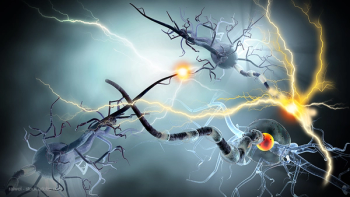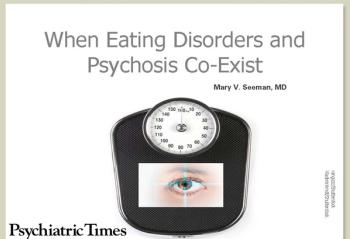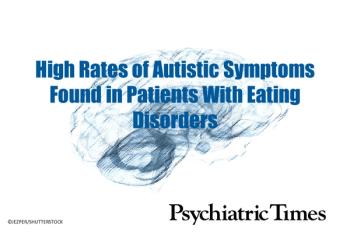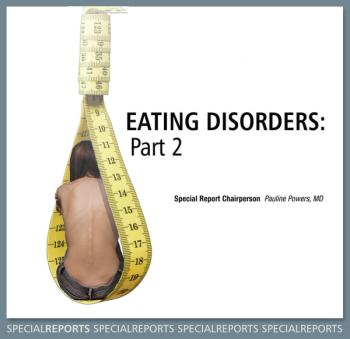
A television drama looks at eating disorders from the patient, physician, and family perspectives. What does it get right—and wrong?

A television drama looks at eating disorders from the patient, physician, and family perspectives. What does it get right—and wrong?

Obsessive-compulsive disorder and related conditions do not always respond to first-line treatments. Fortunately, new options are on the horizon.

Not all stressors are alike—and different types require different treatments.

A healthy diet can improve mood and effectiveness of antidepressant medications. Here's why your patients should be eating healthier.

A diagnosis of depression, anxiety disorders, or bulimia may also indicate a heightened risk of excessive drinking.

Carlos M. Grilo, PhD, explained symptoms, causes, and treatment for binge-eating disorder in his talk at The Annual Psychiatric Times® World CME Conference™.

Although weight loss may be a favorable feature of healthful diets, "clean eating" can be taken to extremes. In this video, we interview Thomas R. Dunn, PhD, author of a recent CME for Psychiatric Times. Orthorexia Nervosa.

Based on our current understanding, what is the underlying etiology for anorexia nervosa? Take the quiz.

This article describes a model for anorexia nervosa that is useful when working with patients or families to help them understand the complexity of the illness.

Eating disorders (ED) are associated with significant comorbid psychopathology and the most extensive medical complications of any psychiatric disorder.

Avoidant restrictive food intake disorder, or ARFID, is a newly introduced eating disorder in DSM-5. Given that the disorder was introduced in 2013, it remains unclear how prevalent ARFID is in the general population.

The body image disturbance at the heart of anorexia nervosa is a false perception akin to the perceptual disorders found in schizophrenia.

Treating eating disorders can feel challenging because patients are typically ambivalent about changing their behavior; however, it is also rewarding, as full recovery is possible even in the most chronically and severely ill patients.

Anorexia nervosa (AN) is a severe and debilitating illness with one of the highest mortality rates of any psychiatric disorder. The illness course is often long, recovery is slow, and the rates of full recovery are low.

More than two-thirds of patients with eating disorders also have comorbid mood and anxiety disorders. This article considers how a transdiagnostic process called interoception may help to advance our understanding and treatment of eating disorders.

Eating disorders (EDs) are associated with high medical and psychiatric comorbidity, poor quality of life, and high mortality, and mortality from anorexia nervosa (AN) is the highest of all mental disorders. Fortunately, there are a number of evidence-based psychological treatment approaches for EDs.

What is the link between restrictive anorexia, anorexia nervosa, and binge eating disorder and ASD? This study sheds some light.

The fallout from burnout: alcohol dependence, binge eating, sleep disorders, and general ill health.

Dialectical behavior therapy may be particularly effective in mitigating biologically-driven vulnerabilities, and zonisamide and lamotrigine may play a role.

What does the evidence tell us about the effect of eating disorders on brain function? Take the quiz and learn more.

SSRIs are effective for the treatment of eating disorders, but what treatment is best for which disorder? More in this quiz.

A special collection of current clinical work and issues surrounding eating disorders-specifically comorbidity, prevalence in men, and mortality.

A 20-year-old college sophomore with “depression and anxiety,” who is exercising ferociously and who is literally dying to lose more weight sets the stage.

Eating disorders are still thought of as a “female problem.” But 25% of those with anorexia and 36% of those with bulimia are males.

You must assess the presenting problem and identify the appropriate diagnostic code needed for insurance billing. But diagnosis is complicated. Help here.